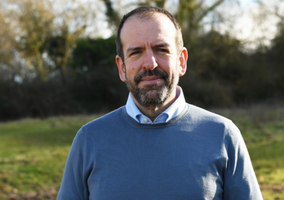Local branches of large, central charity federations are merging due to economic pressures, according to a new report.
The research by Sheffield Hallam University, which involved 19 charity federations including RSPCA, Groundwork, Mind and Girlguiding, said that economic pressures were challenging most federations’ traditional operating model, raising questions of consolidation, rationalisation and other forms of collaboration.
“Where it was possible to make comparisons with participant federations in an earlier study, federations have experienced a picture of consolidation or rationalisation over time,” it says.
“This decline in membership numbers has not necessarily corresponded with a decline in reach and impact – suggesting a pattern of fewer, larger members.
“This trend is consistent with financial pressures in the sector and with current inflationary pressures, and the increasing challenge of recruiting volunteers and trustees post-pandemic, consolidation seems likely to be something that federations will continue to need to grapple with.”
The report says that most consolidation involved local charities merging across geographical areas, with some folding into the central body.
Researchers found that federations faced other common challenges including a lack of visibility and wider understanding of what they do.
Federations have to manage tensions created by contradictory pressures, the report says, around alignment and autonomy, that need ongoing attention.
It also says that a “notably different kind of leadership” is required to succeed at charity federations that would warrant “specific support and development to nurture”.
The report adds that “federations are in no way removed from broader social, economic, political and environmental pressures facing charities”.
‘Federations are complex organisations’
Governance and decision making across charity federations can be “overly complex, slow and inefficient” but these tensions can emerge in “a stronger and more consistent voice”, the report says.
Graham Duxbury, chief executive at Groundwork, said: “Federations are complex organisations but the power of their collective voice outweighs the challenges.
“This report highlights how crucial it is for charities like ours to better communicate the value we provide to our members, our funders, to policy makers and to wider society.
“We all recognise the tensions played out in this report in our own charities but we also see the amazing work achieved by central bodies and membership branches and organisations working in partnership for those we support.
“This report highlights the need for federated charities to share their learning and support each other to make sure we are maximising the unique impact our organisations can make.”
Rob Macmillan, principal research fellow from Sheffield Hallam University, said: “Federations are widespread and incredibly diverse in their size, structure and operation but our research showed that they have the potential to deliver impact far greater than the sum of their parts.
“Federated charities undoubtedly face challenges, but, we also found that they offer unique benefits to both their members, through strong governance, leadership and brand recognition, to their stakeholders and to wider society through driving social action locally and beyond.”
Local community
While funders typically described the main value of federations as the reach into local communities afforded by federation members, and the potential aggregated intelligence gained through federated structures; regulators typically focused on the benefit of good governance, the report says.
Researchers found federated charities bridge the gap between tackling complex larger-scale challenges and putting power in the hands of local communities.
Chris Sherwood, RSPCA chief executive, said: “There are challenges to the federated model, but the RSPCA experiences two-way benefits from having a local presence which understands and adapts to the needs of the local community, supported by a strong and well-known brand and an organisation with the reach and resources to make real change for animals.”
Related Articles












